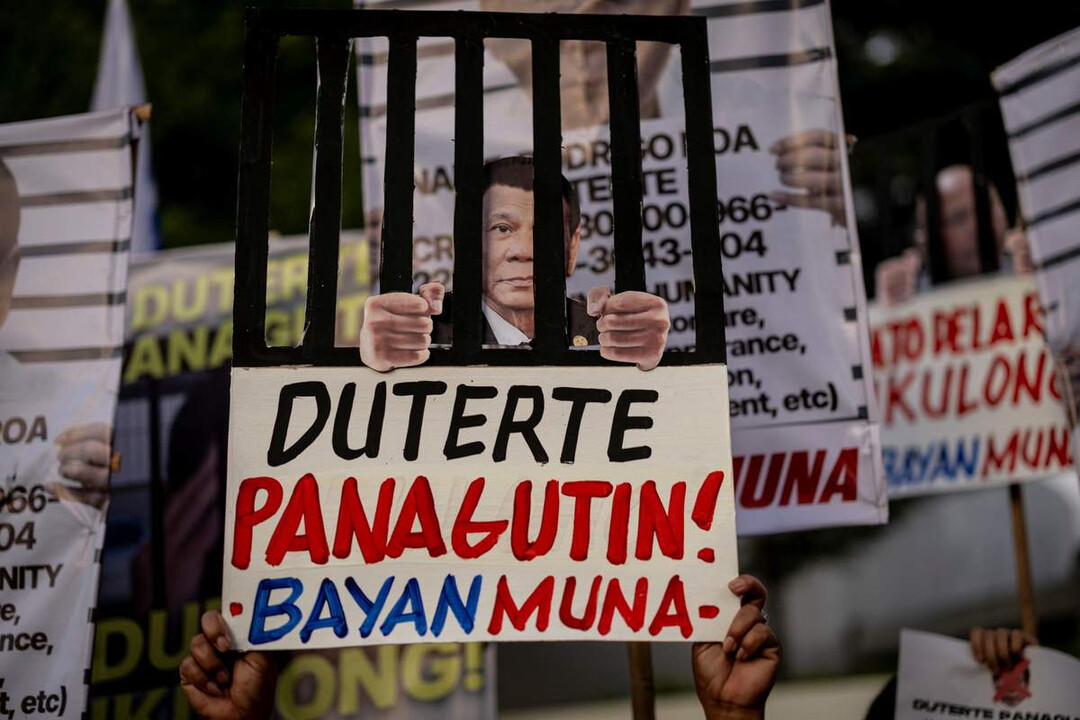
Manila, Philippines - The trial of former Philippine President Rodrigo Duterte at the International Criminal Court (ICC) marks a watershed moment for international justice. Accused of orchestrating widespread state-sponsored violence under the guise of a war on drugs, Duterte is the first Asian leader to be arrested, detained, and brought to trial in The Hague.
However, Duterte is not alone in having presided over large-scale, state-led anti-narcotics campaigns. In the early 2000s, former Thai Prime Minister Thaksin Shinawatra's crackdown on drugs resulted in thousands of deaths, and former Colombian President Álvaro Uribe's "war on drugs and terror" blurred the lines between counter-terrorism operations and drug enforcement, leading to extrajudicial killings.
Yet, unlike Duterte, these leaders never faced international prosecution. Duterte's indictment is a groundbreaking declaration of international accountability, signaling that even sitting or former heads of state who weaponize state power to commit extrajudicial killings are no longer beyond the reach of justice. Duterte's case is a pivotal moment, setting a precedent that could reshape the political calculations of future authoritarian leaders.
Duterte's detention at the ICC serves as a stark reminder of how militarized drug policies not only fail to dismantle illicit drug networks but also erode the legitimacy of the state by systematically violating citizens' constitutional rights to life and due process. By framing drugs as an existential threat, Duterte normalized extrajudicial killings, transforming law enforcement into a machine of terror rather than a protector of citizens' rights and dignity.
Militarized drug enforcement deepens the rifts between the state and society, legitimizing authoritarian violence. In the Philippines, where illicit drug networks have long been intertwined with political patronage systems and the security sector, this approach has only displaced violence onto the most vulnerable populations. Duterte's campaign transformed state coercive apparatuses into instruments of impunity, corroding the state's legitimacy and entrenching a culture of violence that extends beyond his term.
Duterte's war on drugs exemplifies how authoritarian leaders construct security threats, such as drug use, as existential crises to justify emergency powers, suppress dissent, and expand executive control over state institutions. The selective application of violence, targeting urban poor communities while leaving powerful drug syndicates relatively untouched, reveals that the militarized approach prioritized political and social control over genuine drug control. The ICC's intervention fosters a global platform for international adjudication of authoritarian abuses of state power, highlighting the limits of impunity and reaffirming the necessity of legal accountability as a cornerstone of democratic governance.
While the ICC trial is significant, it cannot single-handedly address the Philippines' deeply entrenched culture of impunity. Prosecuting a former head of state in The Hague must be complemented by sustained domestic efforts to strengthen judicial independence, shield courts from political interference, and ensure law enforcement agencies adhere to transparent and rights-based accountability mechanisms.
Judicial reforms must prioritize independence and procedural integrity. While the ICC targets the highest-level perpetrators, sustainable justice hinges on domestic courts prosecuting mid-level commanders and street-level enforcers. Civil society organizations, such as FLAG and the Center for International Law, have pursued strategic litigation but face police non-cooperation, prosecutorial delays, and judicial reluctance.
Past mechanisms, such as the writ of amparo and the writ of habeas data, have had limited impact due to weak enforcement and a lack of institutional support. Reforms should begin by safeguarding judicial appointments from political interference, enhancing the transparency of the Judicial and Bar Council, and protecting judges handling sensitive cases. An independent and empowered judiciary is crucial to decisively break the cycle of impunity.
Professionalizing the police and military entails transforming them into competent, accountable, and rights-respecting institutions grounded in public service. Reforms should start with stringent recruitment standards, merit-based promotions, and mandatory human rights and constitutional law training. Transparent internal affairs divisions, independent civilian review boards, and disciplinary mechanisms are essential for investigating abuses. Embedding professionalism can shield the security sector from politicization and realign it towards democratic governance.
Mainstreaming human rights education in governance, law enforcement, and public policy is vital for shifting institutional cultures. State actors must view drug enforcement through a rights-protective framework rather than a punitive violence paradigm. Public awareness campaigns should reinforce legal accountability, preventing leaders from using crime-fighting rhetoric to justify repression.
Duterte's trial tests international law's resolve to dismantle impunity protecting abusive state actors in militarized drug governance. It also challenges the flawed logic of drug policies that prioritize state violence over sustainable solutions focused on socio-economic development and public health.
Beyond The Hague, genuine justice requires domestic reforms that address deep-seated institutional weaknesses and the long-eroded Philippine social contract, exacerbated by Duterte's drug war. Without rebuilding democratic safeguards, ensuring judicial independence, and transforming the security sector into a rights-respecting force, the cycle of impunity will persist.
President Marcos Jr.'s evolving stance towards the ICC – from rejecting its jurisdiction to expressing conditional openness and ultimately enabling and justifying Duterte's arrest – reflects blatant political calculation rather than a commitment to principled justice. His administration continues to benefit from the authoritarian legacies and patronage networks established under his father, Marcos Sr. Without substantive institutional reforms, Duterte's prosecution risks serving as a tactical distraction rather than a genuine break from impunity.
Robust legal institutions, accountable security forces, and comprehensive human rights education are essential for a governance system that protects both public safety and human dignity. While the ICC signals that grave abuses cannot go unpunished, its reach is limited. True justice requires domestic systems that prosecute crimes, deter state violence, and uphold the rule of law.
[Copyright (c) Global Economic Times. All Rights Reserved.]






























